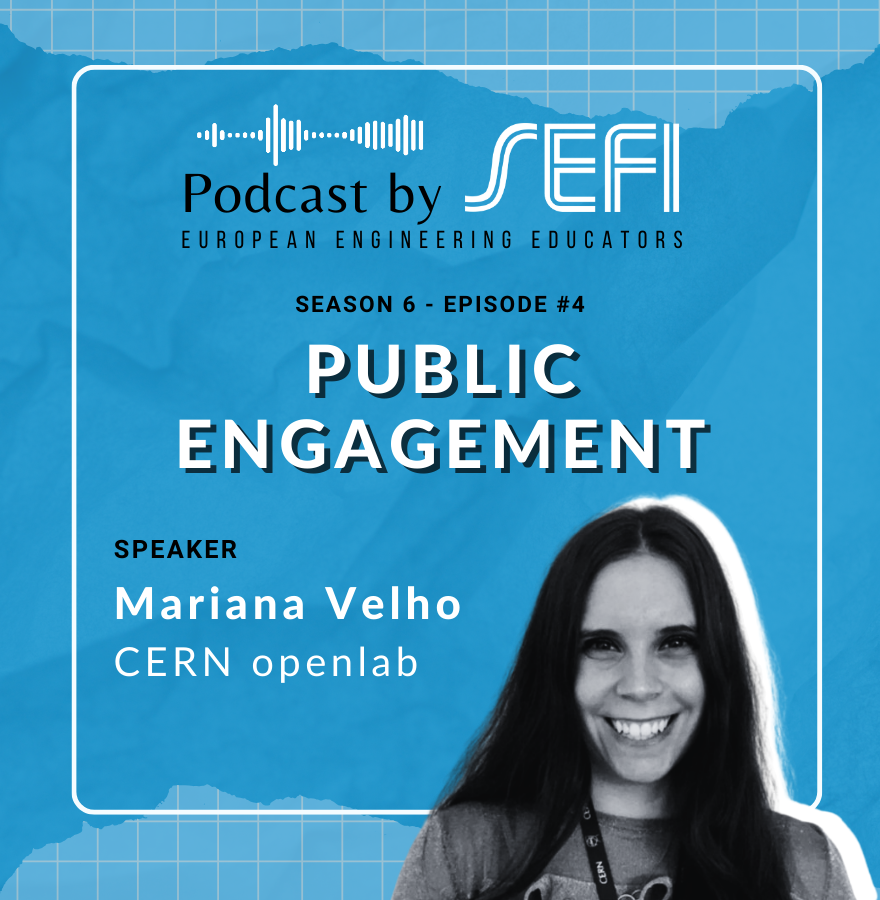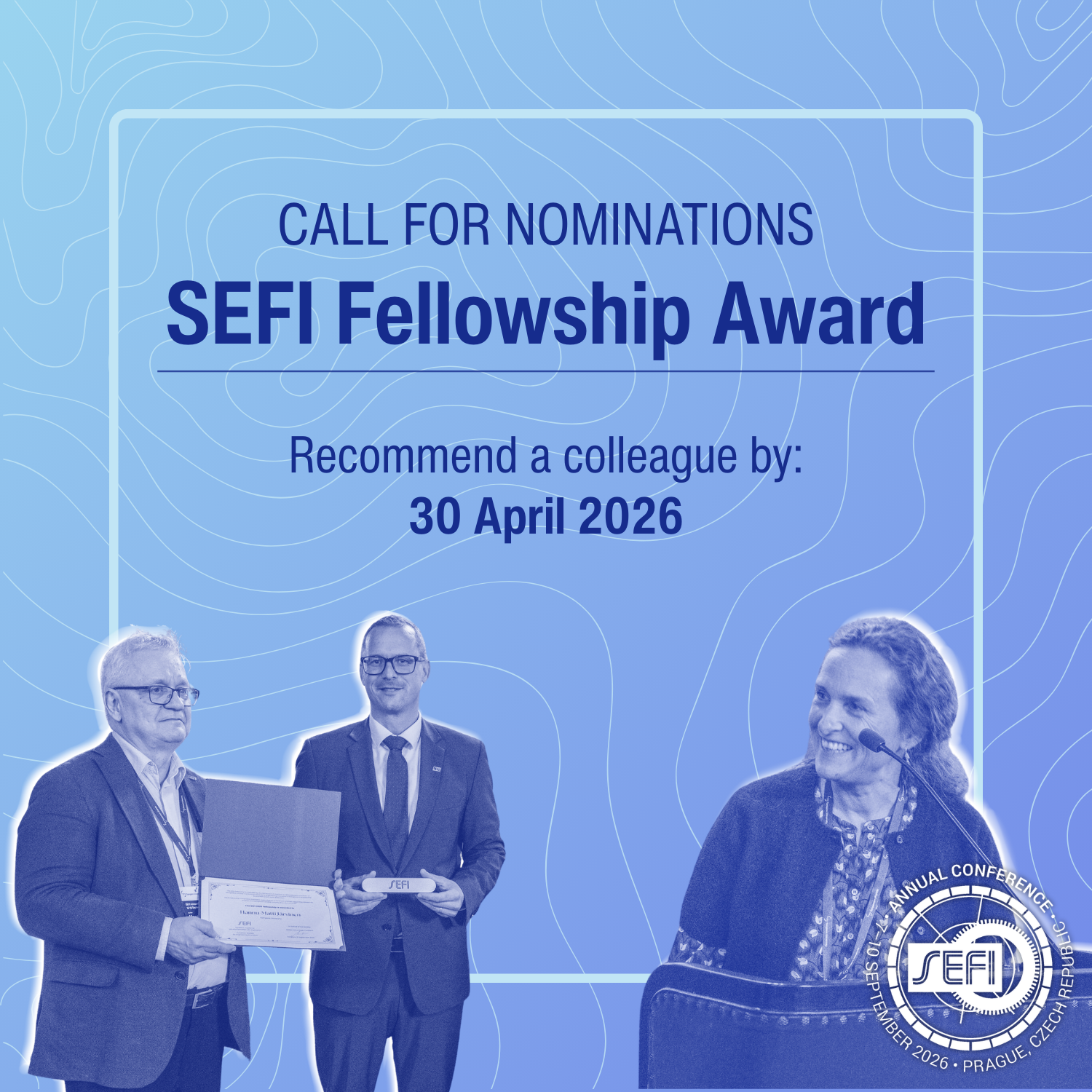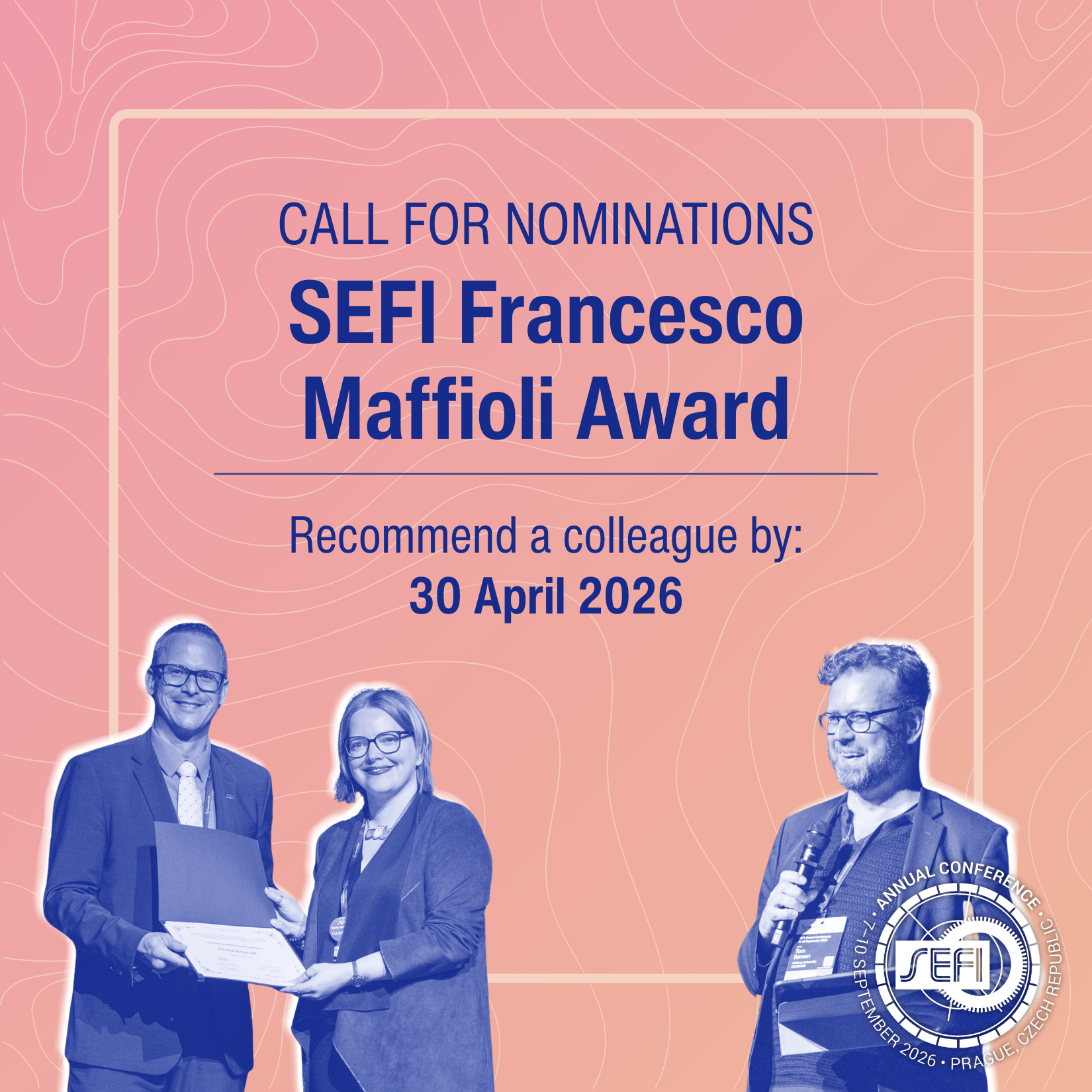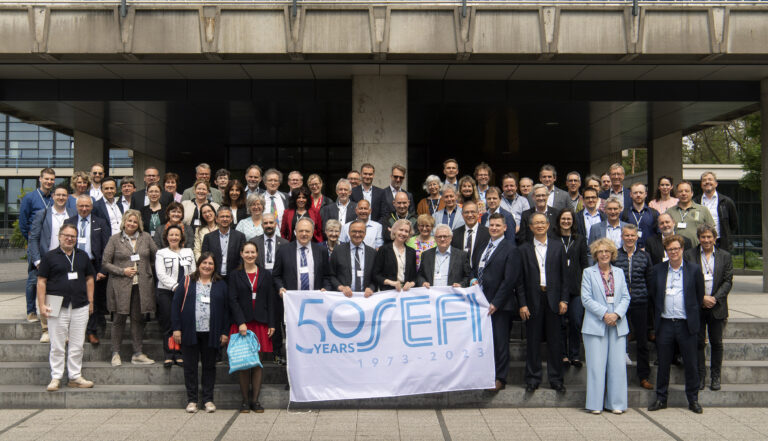The SEFI Fellowship Award recognises meritorious service to engineering education in Europe. Award recipients may…

Attracting students to study engineering, and helping society understand what engineers do, are ongoing challenges within engineering education.
In this episode we spoke to Mariana Velho, Communication, Education and Outreach Manager for CERN openlab. Mariana draws upon her background in psychology, education and outreach, to manage various communication projects and campaigns, and manage stakeholder relationships.
The rest of the article will highlight key discussion points.
The role of psychology
Mariana describes how she would often need to explain the niche area of psycholinguistics (which focuses on how we read and process) to others during her psychology degree. This experience prompted her to start studying towards a postgraduate degree in science communication.
She describes working as a Junior Science Communication Officer with the Atlas Experiment and how, at CERN, she came to realise that her lack of expertise in Physics was an advantage and led her to ask basic questions to understand the work of experts in particle physics. Her background in psychology helped her to understand how people learn and about scientific researcher process, as well as providing her with experience in statistics and probability.
She explains the importance of emphasising the value of working across different disciplines to make impact through science communication and education, and the need to consider the social and psychological side of communication and education work.
The work of CERN
Mariana explains that the focus of CERN, as when it opened in 1954, is still fundamental research in physics and particle physics, but that it is also involved in activities such as developing new software, and transfer of knowledge to other areas in society. CERN openlab was established in 2001 to act as a bridge between CERN, industry and research organisations in areas such as computing and ICT. It thus provides a structured and collaborative framework for industry and research organisations to engage with researchers and for researchers to engage with the new technology being released to ensure it can be used and tested in CERN’s environment. The aims of openlab are thus to establish strategic industrial collaborations to fuel technological innovation, expose technology to researchers but also to nurture knowledge and growth in young STEM researchers. Mariana explains that her role cuts across these aims and that she establishes strategic industry collaborations by delivering targeted messages that foster relationships and promote CERN openlab capabilities, ensuring that potential industry and research partners see value in collaborating. She is also involved in brand building and positioning to strategically promote CERN openlab core strengths, expertise and research and tracking and reporting outcomes to communicate successes internally and externally.
Summer programme
On a more educational side, she is involved in organising and supporting the CERN openlab summer student programme that allows bachelor and master students to become immersed in CERN’s research work for nine weeks, working on cutting-edge computing projects with researchers and collaborators and gaining hands-on experience with the latest computing technologies. They also have visits to the accelerators and experimental areas; a main CERN lectures program and CERN openlab tailored computing lectures prepared for them by computing experts at CERN.
Mariana explains that the programme attracts talented students from around the world, bringing diverse skills, ideas, and perspectives to address CERN’s technological and research challenges and that students often bring new approaches to problems with innovative thinking and unconventional solutions. The programme thus also acts partially as a talent scouting mechanism, identifying promising students who may return as employees or collaborators in the future.
The importance of communication
As a communication officer at CERN openlab, Mariana explains that her role is to ensure an effective information flow between different stakeholders, including engineers. This includes aligning institutional goals with project-level details to facilitate collaboration across diverse teams. For example, she works with researchers to communicate work to show its value and attract new partners and funding. This involves the researchers helping her to comprehend their work and deconstruct all the complexity, so she can construct narratives targeted at different audiences.
Mariana explains that CERN has a history of engaging the public with their work, meaning that a lot of the researchers and engineers see the importance of communicating their work and working side by side with the communication officers. This involves keeping open lines of communication and fostering mutual respect.
The development of educational resources
Mariana tells us how she was tasked with creating a colouring book when working at ATLAS. She explains that she found having to translate the information in a simple way with an understandable story both rewarding and challenging. It involved a lot of creativity and taught her how to consider what to communicate, how to visualise things, how to present them and how to illustrate them. She also describes working on an ATLAS guide for parents and teachers and claims that you need to develop resources that will help everyone engage with the theme.
Working with Microsoft Dream Space
As a research fellow Mariana worked on the development of spatial skills, the ability to visualise, manipulate, and reason about objects and their relationships in three-dimensional space. She explains that spatial skills are critical for success in many STEM careers and are often considered foundational for problem-solving, innovation, and the application of theoretical knowledge in real-world contexts.
She developed a small guide where students had to develop their own 2D sustainable cities out of paper and later they would have to create this in 3D and Sphero, a round small robot, would have to navigate this city. They therefore need to consider which geometric forms they are going to use.
The changing needs of the engineering profession
Mariana explains that the world, the work needs, and what we look for in a job now is not the same as before the pandemic, this having direct implications for STEM educators and communicators. When looking for engineers, we thus need to adapt curriculum and teaching strategies to prepare students for modern engineering roles and for a different and evolving workplace. She highlights emerging technologies such as AI and machine learning, digital twins and cross-disciplinary work. She stresses the need for engineers to understand the social and environmental impact of their work as, whilst previously we might have been focused more on problem-solving for efficiency or meeting some specific needs, today we expect engineers to help solve global challenges. She thus believes that areas of sociology and psychology have a lot to contribute when training future engineers and that emotional intelligence and ethical knowledge should be integrated into the engineering curriculum.
Future Plans
Mariana believes that there should be more funding to develop evidence-based work which is important for policymakers, to redesign school curriculums, to improve university curriculums. She highlights a need to look at science education and communication with a broader lens that is not just letting society know about science but is also empowering communities.
She also describes the importance of improving the diversity and inclusion aspect of science communication and science education and the importance of promoting science in schools from an early age.
Takeaway
Mariana advises looking at things with a broader lens which captures complexities and to reflect on biases and privilege.
Resources
https://marianadantasvelho.com/
https://openlab.cern/about/collaborate-us
https://atlas.cern/Resources/Colouring-Books
https://dreamspace.microsoft.com/en-us/dreamspace/ireland


